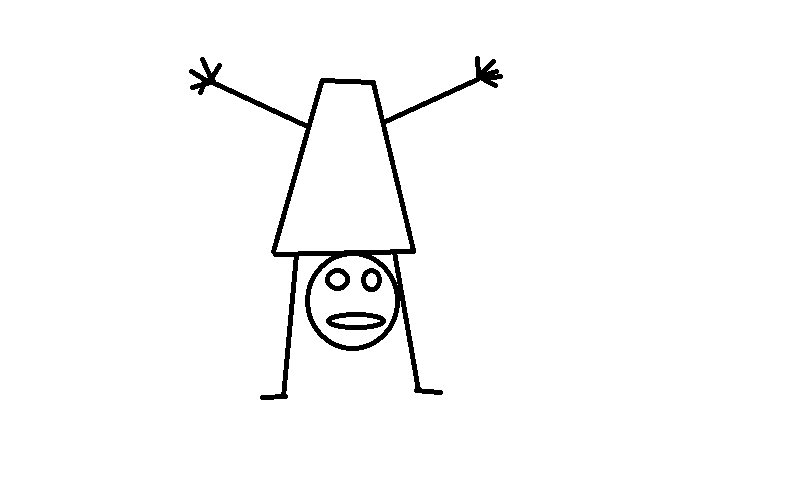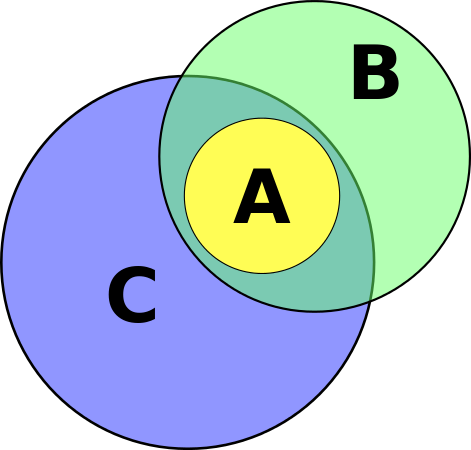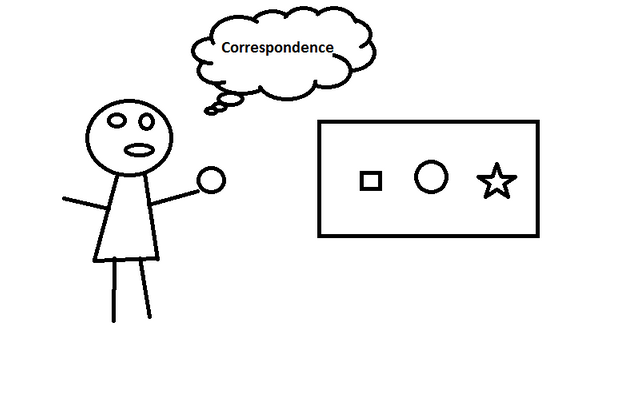It is said that you should never compare yourself with others. Have you ever wondered why?
Every now and then I come across the axiom, "you should never compare yourself with others", but never have I seen someone point out why that is so.

Personally I have a hard time just taking advice without further reason given, of why that advice is a good advice in the first place. However when it comes to the axiom, "you should never compare yourself with others", there is actually a very good reason behind it, that for me at least, would have made a hell of a lot more impact, if someone just had told me this to begin with.
Broadening perspective
To understand the why behind it "all" , we must be looking for the cause, of that why in: "why we should never compare ourself with others".
First we will have to examine the string of words used and understand what is said.
You should never compare yourself with others.
1# You, is an identity
2# Never is a logical operator. It is off/not/null.
To reveal the cause behind "why we never should compare ourself with others", we must apply logic.
1# The law of identity
2# The law of non-contradictions
These laws are in diametrical opposition to man made laws, and can't be escaped, changed or stopped. They are immutable. Man made laws are changeable.
Since we are in nature and right now are trying to figure out the why of something is in nature. It is not only key but a prerequisite to even gaze into the realm of causality, that we align our thoughts, to the best of our ability, with nature, as it is known. Logic.
The law of identity (LOI):
An individual is not another individual. If he was another individual and that other individual was him, neither would no longer be individuals. The same goes for a pea, a car or a house etc. One house is not another house. You are not me, I am not you. This is the law of identity.
Taken from the wiki for extra input: The law of identity
In logic, the law of identity is the first of the three classical laws of thought. It states that each thing is identical with itself. By this it is meant that each thing (be it a universal or a particular) is composed of its own unique set of characteristic qualities or features, which the ancient Greeks called its essence.
In its symbolic representation, "a = a" or "For all x: x = x".
In logical discourse, violations of the Law of Identity (LOI) result in the informal logical fallacy known as equivocation.[1] That is to say, we cannot use the same term in the same discourse while having it signify different senses or meanings – even though the different meanings are conventionally prescribed to that term. In everyday language, violations of the LOI introduce ambiguity into the discourse, making it difficult to form an interpretation at the desired level of specificity. The LOI also allows for substitution. /wiki https://en.wikipedia.org/wiki/Law_of_identity
The law of non-contradiction:
If an individual is both himself and not himself at the same time, we have a contradiction. Nature can not produce a contradiction, just as it would be a contradiction if you are reading this and not reading this. The very reason why we can live and survive in nature (reality), is because we can understand how nature operates to a certain degree. If nature constantly produced contradictions, it would be impossible to drive a car, write this post, take a walk or even talk. Because as you were speaking, "you were not speaking and then you became a horse, but not a horse, only sometimes always". Not respecting the law of noncontradiction will result in errors in reasoning. Always. Not maybe always, but always. As clearly illustrated in the babel written just above.
From the wiki: It states that contradictory statements cannot both be true in the same sense at the same time, e.g. the two propositions "A is B" and "A is not B" are mutually exclusive.
Sharpening perspective
This gives us more than enough to understand the causal factor of why we should never compare ourself with others and why it should be avoided, due to the fact that we will disconnect from what actually is true in reality. This can be observed in the following example:
Imagine yourself walking down a road and as you walk, you look down and see a stone. You pick it up and find it to be a quite heavy stone. You continue to walk and within short time you look down, and once again see another stone. This stone you also pick up and you find it to be very heavy. Comparing the two stones you figure, that the first stone is now a very light stone.
Understanding the perspective
The morale of the story is that if you compare yourself with others, like the way the stones are compared in the example, you will commit an error of reasoning in thought while handling information.
The first stone did not change at all, it did not get lighter or smaller after you found a stone that was bigger. The same principle is in operation all the time, including when you see someone that is stunningly beautiful. Another's beauty does not occur uglyness in others or in you. You will be you, no matter who you compare yourself to. The stone you found will always be the stone you found no matter what stones you compare it to.
Tip:
Instead of comparing yourself with other, you should compare yourself with you. Find your index and observe growth from that.
That which is, is. That which is not, is not. Even though we are powerful beings we do not pocess the ability to occur such changes in reality, that would make something that is, into something that is not, or vice versa. All beings are individuals. As soon we take pride or guilt by confusing who we are with something who we are not, it is by default an error in our thought process.

Other examples
The behavior of this can further be observed if we look at the following justifications.
1# Sure I beat my children every now and then, but that's nothing. My brother often beats the crap out of his children.
2# I live in a functional country. Just look a Sweeden it is so much worse there.
This form of error in logic is identifyed as the logical fallacy: "guilt by association".
We are basically confusing information together (adding it), by adding an association that is impossible in nature. The confusion arises from associated qualities that are not true, but still are being associated, because other qualities were true.

Image credit and more information about "guilt by association at": https://en.wikipedia.org/wiki/Association_fallacy
An Euler diagram illustrating the association fallacy. Although A is within B and is also within C, not all of B is within C.
So the plain and simple reason why you should never compare yourself with others, is because it is a faulty comparison. It is illogical and it divert us away from corresponding accurately with the very nature we live in.
Peace
